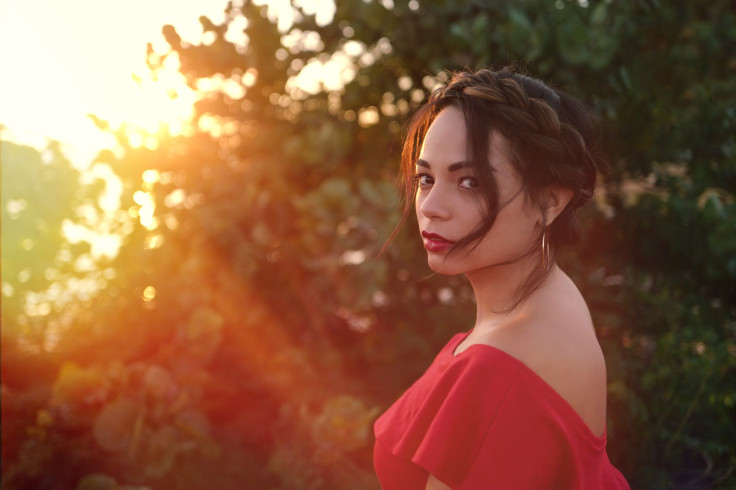The Effect Of Color On Sexual Attraction: Why Wearing Red Makes You Feel Sexy

The way we look can affect how attractive we appear to ourselves and to others, specifically when it comes to wearing colors. When we see the color red, we think of images related to passion, love, and even sex. Now, a group of German researchers have found wearing red can influence perceived self-attractiveness.
In the study, published in the European Journal of Social Psychology, people who wore red reported feeling more physically attractive and sexually receptive than those who wore blue, known as the "red-effect."
Read More: Does The Color Red Make You More Attractive?
This is based on the belief the color simply draws attention to a red-colored object. The increase in attractiveness evolves from the idea that people notice the object/person and then judge the object or person. This perceived judgement could become clearer or more emphasized through the red color.
"[T]he results showed that the self-perception red effect was mediated by the individuals' self-perceived sexual receptivity and self-perceived status," wrote the researchers.
Anne Berthold, corresponding study author from the University of Zurich, explained to PsyPost she was inspired to study the effect of color based off studies by researcher Andrew Elliot.
"[A]s I read the article of Elliot et al. on the red-effect regarding strangers, I decided to do a practical seminar on color effects. We discussed many ideas within the seminar and some of them were directed towards self-perception," she told PsyPost.
In Elliot's 2008 study, he found women shown framed by or wearing red were rated significantly more attractive and sexually desirable by men than the exact same women shown with other colors. These women were also more likely to receive an invitation to prom and to be treated to a more expensive outing when wearing red. The red effect only extended to males and only perceptions of attractiveness, meaning red did not increase attractiveness ratings for females rating other females, or influence perceived likability, intelligence, or kindness.
Two years later, Elliot conducted another study to see whether wearing red influenced women's perceived physical and sexual attractiveness towards men. Men who wore the color red or who were framed with a rosy hue were deemed both good looking and had sex appeal. These men were also viewed as higher in status, more likely to make money, and more likely to climb the social ladder, increasing attraction.
Read More: Women Tend To Wear Red During Ovulation To Attract Male Attention
In a series of three experiments for the current study, Berthold and her colleagues had participants put on either red or blue t-shirts. They were placed in cubicles that were equipped with a mirror. The participants had to complete a survey that included questions about their self-perceived attractiveness. But, the researchers led the participants to believe the study was on the ability to predict personality traits based on facial features.
In the last experiment, the participants followed similar procedures, but they were asked to take a picture of themselves, rather than being provided with a mirror.
The findings revealed participants perceived themselves as more attractive while wearing red than wearing blue.
“We found that people can feel more attractive when putting on red clothes,” said Berthold.
She does caution the red-effect may not benefit everyone. For example, some people could feel worse when wearing red because they feel all eyes are on them. This warrants further research regarding how different personality characteristics interact with the color effect.
The effect may also wear off if someone dresses in red every day.
The color red does enhance attraction for both men and women, and perhaps we can use color psychology to our advantage to boost our self-confidence.
Source: Berthold A, Reese G, and Martin J. The effect of red color on perceived self-attractiveness. European Journal of Social Psychology. 2017.
See Also:
Color Psychology: 10 Ways Colors Trick You Every Day
Color Psychology Makes Some Instagram Filters More Likable Than Others
Published by Medicaldaily.com



























